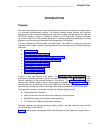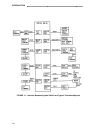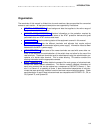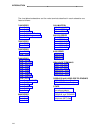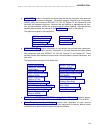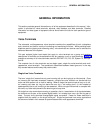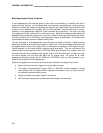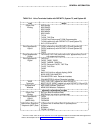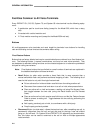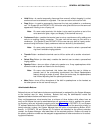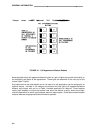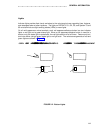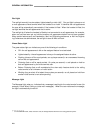
GENERAL INFORMATION
GENERAL INFORMATION
This section provides general information on all of the equipment described in this manual. Infor-
mation is provided on voice terminals, adjuncts, data modules, and data terminals. Detailed
information on these types of equipment can be found behind the tab for each particular type of
equipment.
Voice Terminals
The advanced, multi-appearance voice terminals combine the capabilities of both a telephone
and a terminal and have a variety of controlling and monitoring functions. While providing basic
telephone service (placing and answering calls), voice terminals can also be used to activate the
advanced features of the system.
This part explains higher level topics that apply to voice terminals as a group and contains
descriptions of facilities and characteristics that are common to all or most terminals. Table A
presents a summary of all voice terminals used with DEFINITY G1, G2, G3, System 75, and Sys-
tem 85.
The complete line of voice terminals are two basic types,
single-line voice terminals
and
multi-
appearance voice terminals.
The operational differences between these types are in the way
they access features and the way they receive calls.
Single-Line Voice Terminals
The term ‘‘single-line’’ means that only one incoming call can be ringing at an idle terminal. Once
an incoming call has been answered, however, a single-line voice terminal can handle both the
active call and another call on hold or waiting. When a single-line terminal user is busy on a call,
an incoming call does not ring but alerts the user via a ‘‘call waiting tone’’ (in the handset or
speakerphone) that a call is waiting to be answered. While a single-line terminal is occupied with
two calls, any other calls placed to the terminal get a busy tone.
All single-line voice terminals are analog in operation; that is, transmission of all signals between
the terminal and its port, at the system digital switch, is in analog form over a tip and ring pair of
wires. The port circuit provides analog/digital signal conversion. Power for these terminals is
supplied from the switch on the single voice pair. Single-line terminals have many applications
but are more limited in their access to system features than multi-appearance terminals.
2-1





